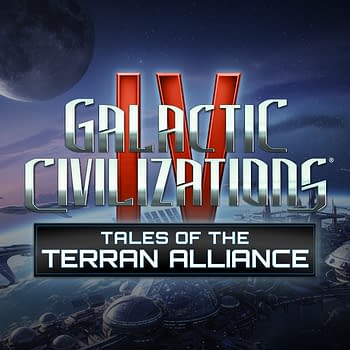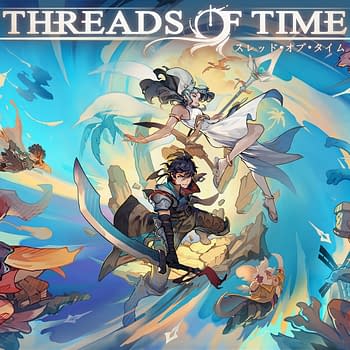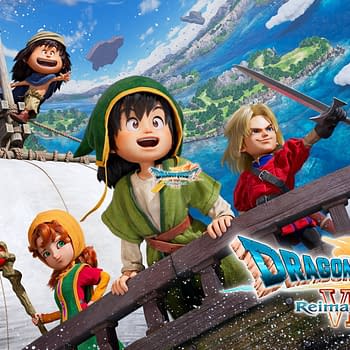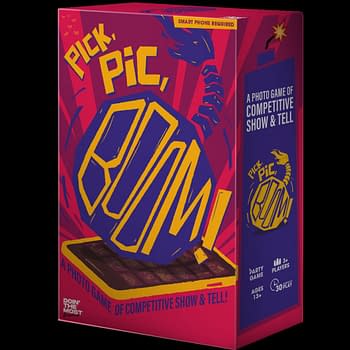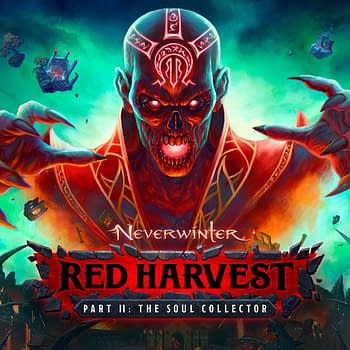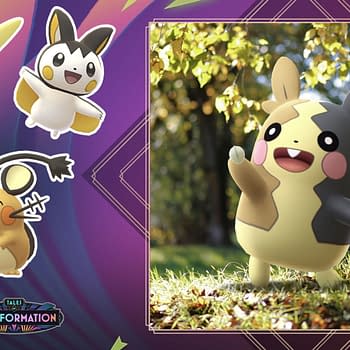Posted in: Board Games, Games, Review | Tagged: game review, Honshu, Renegade Game Studios
Building Your Greatest Japanese Empire Possible With 'Honshū'
Sometimes you get a game and you foolishly think to yourself "this will be easy." Then you crack open the box and realize you need to put much more attention into it than you realize. That's not necessarily a bad thing, as sometimes games can surprise you, and that make it part of the fun. That's what happened to me and some friends as Renegade Game Studios sent me a copy of Honshū to review.
Along with my friends, Doug, Sarah, and Allison all made our way over to Watchtower Cafe in SLC to figure out the game and have a little fun. Honshū is a map building card game for two to five players, where everyone is playing a warlord in Feudal Japan. Your goal is to build the best city with the most resources and best design possible to gain points, and the person with the most points wins. The game starts out by giving everyone a scoring summary card, dealing out six of the numbered land cards (1-60), and placing the land resource cubes near the draw deck in the center.
Players deal out a card with a number on it. The number determines what order they get to choose land in, at which point you hand everyone a numbered order card to you can keep track. Then, in order from first to last, each player has a choice of any of the land cards played, which means you can take back your own if you so desire, or take someone else's if you like the resources and land pieces on it. This was a nice strategic feature as it made you contemplate what to throw down. If you have resource cubes (which we'll get to in a second), you can lay one on your card and it adds 60 points to the score on the card, which would make it the top card by default, but then you also lose that resource after you spend it.
Once you get your card, you lay it down on your map. You have forests, towns, production squares, factories, lakes and deserts, all which play a hand in determining your score. Production squares get you a colored cube of that resource at the end of the round, but factories do not, which can often be confusing if you're not watching your resources properly. Each card you play MUST overlap at least one square of a previously played card, which means you can cover desert and forests if you wish with something valuable, or you can trade out factories for towns. The only thing you can't cover is a lake, either under or over it, which became one of the most annoying aspects of finding space to play cards (until scoring).
One a round is over, you then play four new cards and start the process over. However, the game threw in an extra mechanic that both messes with you and your opponents. You will have two phases of play, divided up by drawing six cards for the first round without drawing any new ones until you run out. After the first three turns, you pass the remaining three cards in your hand to the player on your left, meaning everyone now has one of your opponent's hands. So whatever advanced strategy you think you may have had is thrown out the window, even if your plan was to mess other people up in the process. While confusing at first and kinda dickish on the surface, I can appreciate the mechanic to making you choose wisely about what you intend to do and how to play your cards.
After the first phase was done and we could see what each other was planning out, there was a lot more strategy involved as to what was laid down and what was chosen. I don't believe you get a good feeling of what you as a player want to accomplish until you're at least four cards in and realize "Okay, I'm getting a lot of towns, I'm going to focus on towns and whatever lakes come my way." Same as you would a game like Monopoly. You don't have a clue of what you'll be focusing on until a few trips around the board and seeing what property you have, so you can't just focus on one thing at the start. I was enthrauled with that choice, even if it isn't totally by design, because it forces you to think on your feet with what you've got.
I will say that when you finally decide to build what you want to build, it becomes an annoying challenge to find what you want and capitalize on it. As you can see in the picture below, Doug chose to go for building the biggest town he could, while also throwing in as many connected lakes as possible, so that he could achieve a higher score. However, he was left with a lot of unused resources and scattered forests that didn't help him at all, based purely on what he was dealt. If you find a strategy that ends up working for you, the game will be a breeze. But if you end up with a lot of random nonsense that you can't connect properly, it becomes an uphill battle to figure out what you need to get any kind of reasonable score.
At the end of the second phase of play, you tally up all the connected towns, the amount of forests, lakes, and cubes (which get transferred to bigger factories if they haven't been spent), and slowly tally up your score based on the system on your scoring sheet. To make the game much more interesting, there are Alternative Scoring cards you can add to the game, which will change strategies and make things a lot more interesting down the line. For this particular game, Doug and myself tied! In the event of a tie-breaker, you count up the amount of deserts on your land and the person with the most wins, which ended up being Doug by two.
Overall, I enjoyed Honshū once we got it figured out. The instructions do explain everything, but not in a linear fashion. You find yourself going back to the rules a couple times your first time out. I played this game again with five players at Game Night Games in SLC, all of whom were experienced board gamers, and even they were a bit confused by what was going on their first time out. Once you get a group of people together who know what's going on, the game becomes a lot easier and faster to play through and can become very intense. I recommend getting Honshū if you're into map building games, but do understand there's a slight learning curve you'll need to deal with, and the best way to get past it is to play a test game with whomever is trying to learn.














